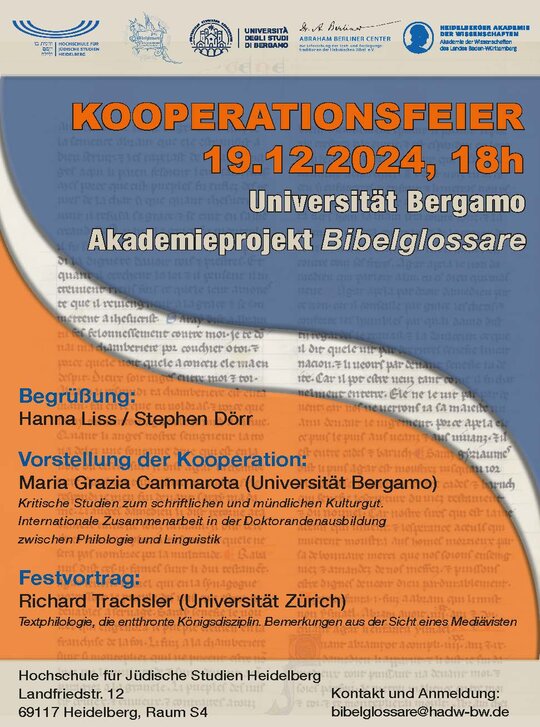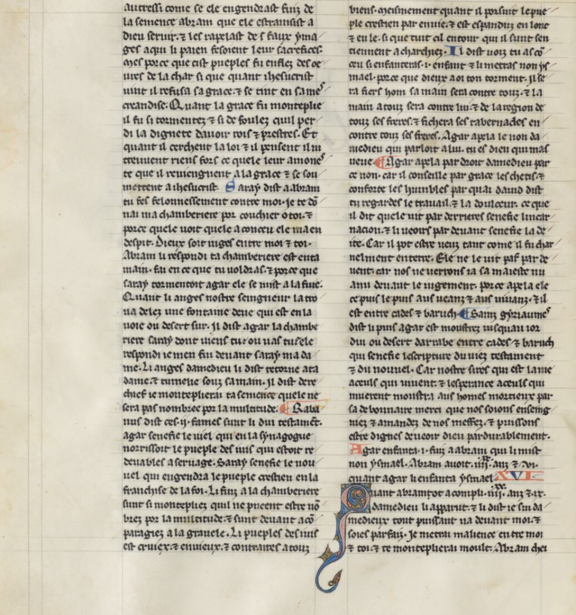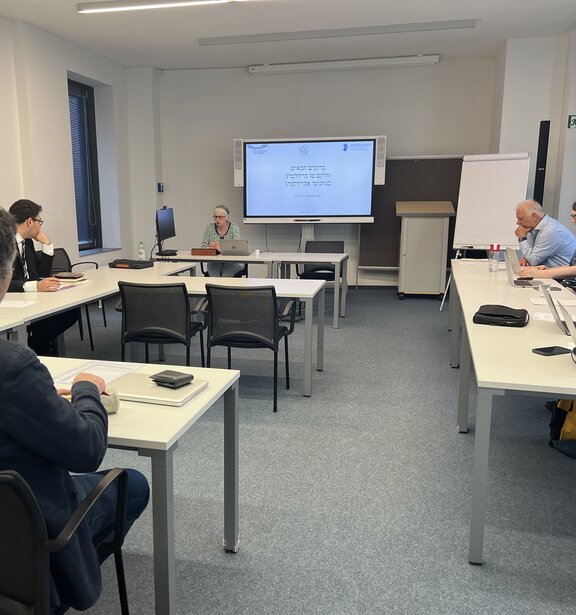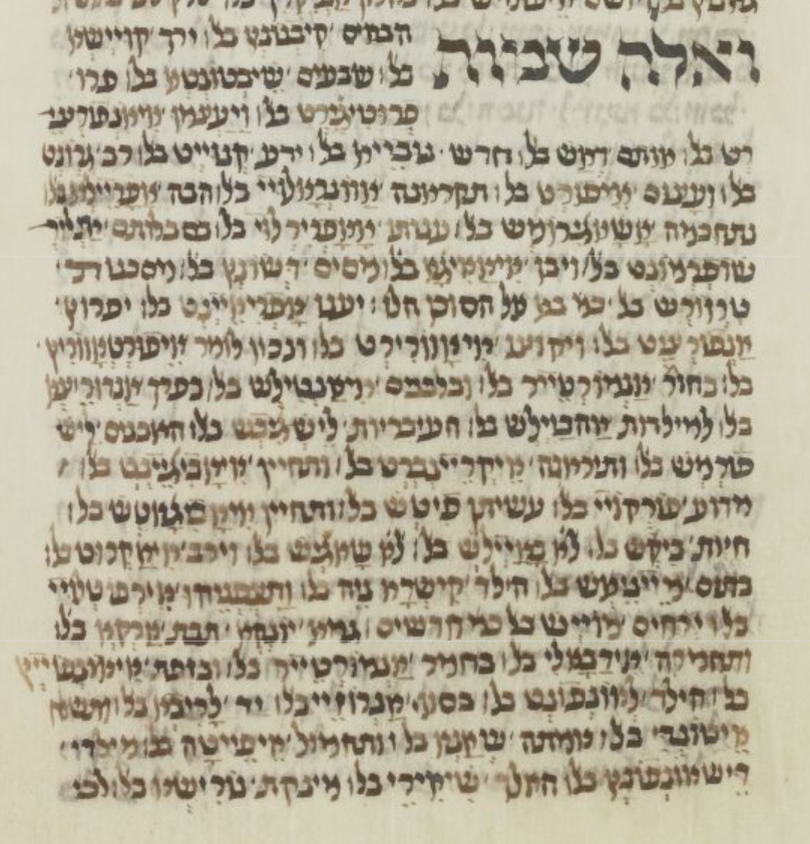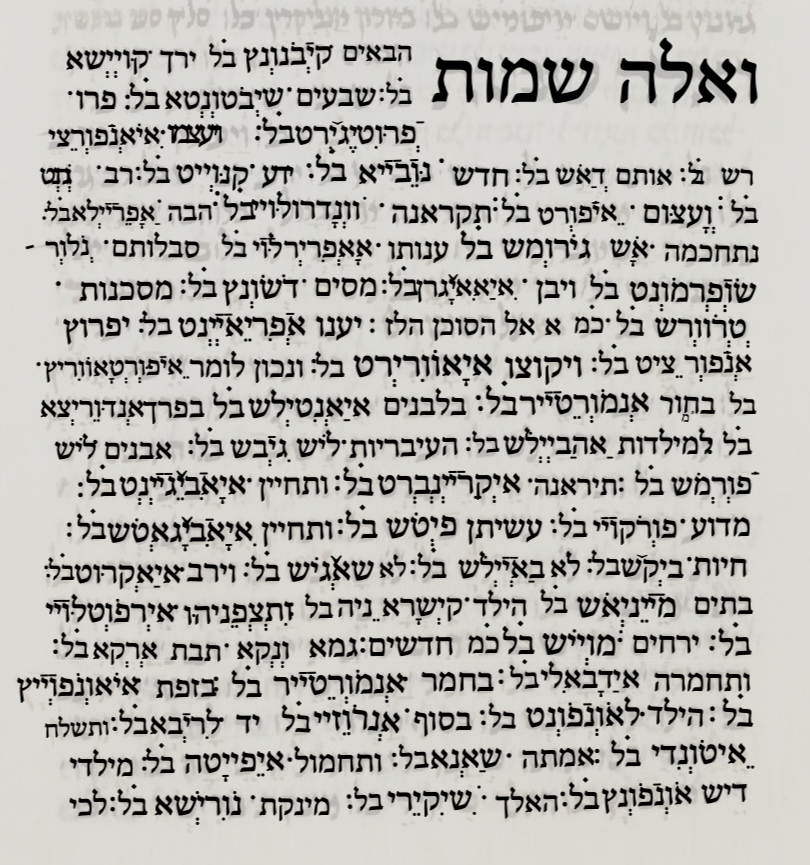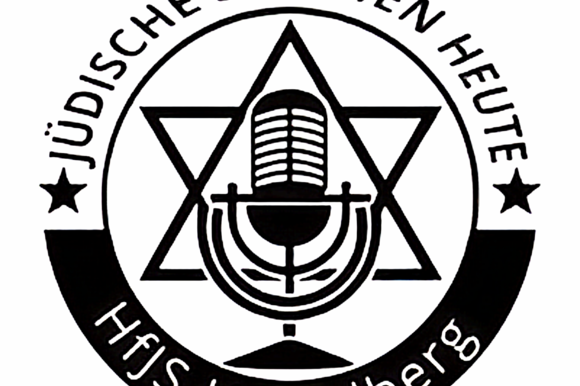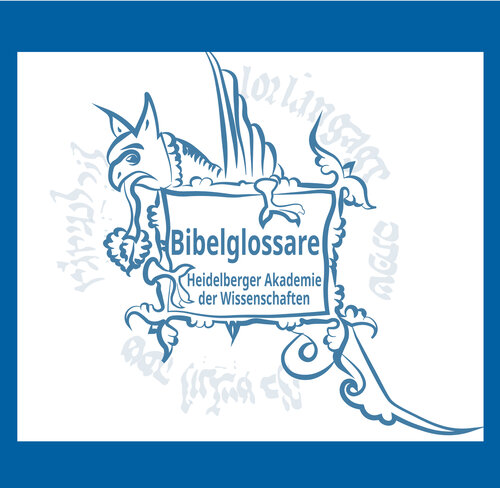Funding by and establishment at the Heidelberg Academy of Sciences and Humanities / Academies' Program
Homepage | Heidelberg Academy of Sciences and Humanities
Bible glossaries as hidden carriers of culture | Heidelberg Academy of Sciences and Humanities
The project focuses on Hebrew-French glossaries, which are being edited (for the most part for the first time) and historically and philologically processed and contextualized because they are exceptional witnesses to a simultaneously developing (Jewish and Christian) French (Bible) reading culture in Western Europe between the 12th and 14th centuries. The glossaries form basic texts for research into the interrelations between Jewish intellectual history and the non-Jewish environment as well as the lexical interferences between Jewish and Christian vernacular cultures. The French glosses are written in Hebrew throughout and comprise about 1/4 of the Old French vocabulary known today.
From the outset, the philological work will be integrated into a digital working environment that uses the BIMA 2.0 database, which has been in productive use in the Corpus Masoreticum project since 2018 and is continuously being further developed. BIMA 2.0 ensures the editorial indexing and long-term archiving of all Hebrew-French material and provides tools that guarantee the sustainable management, processing, presentation and visualization of the project results. A data export interface via RDF/OntoLex ensures that the interoperability of the lexicographically relevant edition data is guaranteed as 'linked open data' with the resources of DEAFél(Dictionnaire étymologique de l'ancien français électronique), which are still available, and that DEAFél is therefore also used for further research. The field of Digital Humanities also makes an independent research contribution to the differentiation of a digital corpus linguistics of Judeo-French text cultures of the Middle Ages. The digital results will be supplemented by online and print publications that will provide new transdisciplinary academic impetus for Jewish studies, Romance studies, Jewish and Christian theology and medieval (knowledge) history as a whole.
